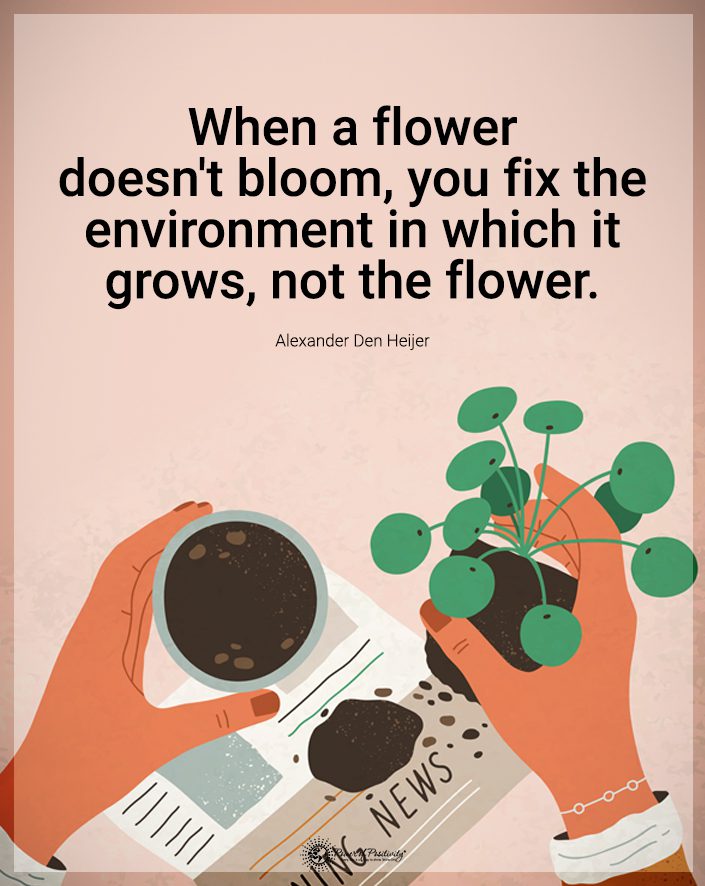Here’s why you should let go of the little things in your relationship.
Marriage, a union of two distinct individuals, brings together unique habits and preferences to create a journey enriched by love and shared experiences. Amid this beautiful companionship, certain behaviors that wives exhibit from their husbands’ perspective can inadvertently give rise to irritation. This exploration delves into these behaviors to enhance mutual understanding in marriage and provide insights for navigating marital irritations.
Marriage brings together two individuals with different habits and preferences; certain wives’ behaviors can become points of contention for husbands. However, it’s within these differences that certain behaviors may become points of contention. A husband’s perspective on marriage involves a journey of togetherness and understanding and adapting to his wife’s idiosyncrasies. Each partner contributes unique behaviors and inclinations to the relationship, enriching it while occasionally leading to conflicts.
These instances of annoyance, while typical, should not overshadow the deep affection and commitment that define a marriage. Instead, they present opportunities for growth and improved communication. Addressing these annoyances becomes vital for sustaining a harmonious partnership. By engaging in open conversations and empathetic discussions, couples can identify triggers and foster a deeper understanding of each other. This process respects individuality while nurturing the shared bond. Couples can cultivate a stronger, more resilient marital connection by acknowledging and constructively addressing these behaviors.
NOTE: Although men also have annoying habits, this article focuses on wives. We cover the things men do to annoy wives in a separate article.
The Dynamics of Marital Annoyances
Within the tapestry of marriage, the interplay between individuality and partnership weaves a complex yet beautiful pattern. The delicate balance between embracing one’s unique traits while nurturing a harmonious companionship forms the heart of this dynamic journey. Factors contributing to marital disagreements emerge as partners navigate their distinctive habits and preferences, sometimes resulting in the occasional discord. This intricate dance requires a keen understanding of personal autonomy and collective unity.
Amid the partnership’s intricate dynamics lie moments of minor grievances. These instances might seem trivial individually, but their cumulative impact can profoundly affect the relationship’s equilibrium. Recognizing these subtle discomforts is pivotal for maintaining the sanctity of the bond. By acknowledging these concerns, couples can create an environment where open dialogue and consideration flourish, enabling them to address issues before they escalate.
Seven Wives’ Habits That Often Perturb Their Husbands

1. Overthinking Small Details
In the intricate dance of marital life, wives overthinking small details can sometimes cast a shadow over even the sunniest days. The challenges presented by incessant over-analysis are not to be underestimated. While attention to detail is admirable, the relentless dissection of every decision can lead to unnecessary stress and complexity. From choosing a restaurant for a weekend dinner to making vacation plans, the process can transform from enjoyable anticipation into a source of strain. Interestingly, from a male perspective, simplicity often reigns supreme. Husbands tend to gravitate towards straightforward solutions that prioritize practicality over convolution.
They find solace in streamlined decision-making, an approach that can seem worlds apart from the intricate tapestry of overthinking. This contrast in approach underscores the importance of finding a middle ground where both partners feel heard and understood. Couples can cultivate an atmosphere of cooperation and shared decision-making by addressing the effects of overthinking in relationships, enriching their marital bond.
2. Expecting Husbands to Read Minds
In the labyrinth of marital dynamics, an intriguing yet challenging phenomenon often surfaces: wives expecting their husbands to possess an uncanny ability to intuit their feelings and needs. While the desire for profound connection is valid, the pitfalls of assuming mind-reading capabilities are worth exploring. While deeply attuned to emotional nuances, the male psyche can’t consistently decipher every unspoken sentiment. The foundation of any strong partnership rests on a cornerstone often overlooked in these moments: clear communication. The importance of openly expressing one’s thoughts and emotions cannot be overstated. This highlights the significance of addressing the myth of intuitive understanding in marriage. Nurturing the art of effective communication can bridge gaps, enhance mutual understanding, and forge a path to a more harmonious and emotionally fulfilling relationship.
3. Frequent Worries About Appearance
Within the mosaic of marital life, the frequency of wives’ concerns regarding appearance can cast a shadow over the canvas of shared experiences. Husbands’ perspectives on the essence of beauty often gravitate towards an appreciation of authenticity and simplicity. The strain caused by constant self-critique, fueled by societal expectations, can lead to a ripple effect that touches both partners. Navigating these worries requires a two-fold approach: internal and external. Internally, wives can embark on a journey of self-acceptance and self-love.
It’s about silencing the critical inner voice and replacing it with affirmations acknowledging inherent worthiness. Externally, couples can co-create an environment where compliments are genuine, and conversations encompass a broader spectrum of life’s joys and challenges. This situation underscores the importance of recognizing that beauty extends beyond the physical and that self-worth is multi-dimensional.
Understanding that intrinsic value transcends appearance becomes a stepping stone toward a more profound connection founded on mutual acceptance and appreciation. Embracing understanding self-worth beyond appearance enriches not only one’s self-perception but also enhances the depth of connection within the marriage.
4. Making Comparisons to Other Couples
A relatively common but potentially damaging behavior can emerge amid marriage’s intricate fabric: wives comparing their relationship to other couples. The pressure generated by constant comparisons can cast a shadow over the unique journey a couple shares. Each relationship is a distinct narrative shaped by individual circumstances, personalities, and dynamics. Embracing and valuing the uniqueness of one’s relationship is essential for fostering a healthy and nurturing environment. By doing so, couples can break free from the constraints imposed by external standards and expectations. This exploration dives into the dangers of relationship comparisons, emphasizing the significance of nurturing an authentic partnership that thrives on its inherent strengths and shared aspirations.
5. Wives Bringing Up Past Mistakes
Within the tapestry of marital interactions, a behavior that can significantly strain relationships emerges: wives continuously revisiting past grievances. This tendency to bring up past mistakes, while a common human trait, can cast a shadow over the present and the future. The strain caused by such visitations can hinder the growth and progression of a partnership. Instead of dwelling on the missteps of the past, the importance of forgiveness takes center stage. Acknowledging mistakes and learning from them is crucial, but it’s equally vital to cultivate an environment where growth and transformation are championed.
In this pursuit, communication serves as the bridge between the past and the future. Partners must engage in open dialogues that delve into the root causes of these visitations. When approached with a genuine intent to understand and heal, these conversations can unearth insights that help break the cycle of reliving past mistakes. By embracing the art of letting go of past relationship errors, couples can create a space for healing, growth, and a more harmonious future together.
6. Indirect Communication Between Wives and Husbands
Navigating the intricate waters of marital communication often brings to the surface a notable challenge: indirect communication. Hints and passive-aggressive comments can create a web of uncertainty and misinterpretation. Although sometimes unintentional, veiled expressions can sow seeds of confusion and frustration. In contrast, the preference for open and direct dialogue emerges as a cornerstone of effective communication. Honest conversations, where thoughts and feelings are articulated clearly, foster a deeper connection and mutual understanding. This exploration highlights the importance of promoting clear communication in marriage, inviting couples to embrace a more straightforward and genuine approach that paves the way for a more harmonious partnership.
7. Wives and Extended Shopping Trips
Amidst the ebb and flow of marital life, a relatively light-hearted yet occasionally vexing behavior emerges extended shopping excursions. While shopping can be a delightful pastime, the duration of these trips can sometimes create tension. The challenge lies in maintaining a balance between individual hobbies and shared time. In a marriage, respecting individual interests while nurturing shared experiences becomes paramount.
Navigating the nuances of extended shopping trips calls for open conversations, empathy, and a shared commitment to compromise. It’s an opportunity for couples to explore strategies that allow each partner to pursue their interests while ensuring that the bonds of togetherness remain strong. Perhaps it’s allocating dedicated “me time” for these pursuits or finding ways to involve each other in these hobbies, even indirectly.
The key is to strike a harmonious balance that honors individuality and companionship. This exploration sheds light on respecting individual interests in marriage, reminding couples that while autonomy is vital, the harmony of shared moments contributes to the foundation of a strong and enduring partnership.
Final Thoughts on Mutual Respect Between Wives and Husbands
As we bring our journey through the intricacies of marital dynamics to a close, it’s a poignant moment to linger on the canvas of mutual respect that forms the backdrop of a thriving partnership. This respect isn’t a mere formality; it’s the heartbeat that sustains the rhythm of a harmonious marriage, infusing it with understanding, empathy, and unwavering support. Compromise and patience, like a clock’s hands, mark a harmonious marriage’s steady rhythm.
Compromise doesn’t imply sacrifice but a conscious choice to meet in the middle, honor each other’s preferences, and co-create a shared life. On the other hand, patience is a gentle reminder that growth takes time. It’s a virtue that allows partners to navigate the complexities of their unique personalities and habits. For wives, understanding the male perspective is akin to deciphering a beautifully written novel—one that requires attentive reading. Men often express themselves differently, seeking simplicity in communication.
Acknowledging this distinction can pave the way for bridging communication gaps in relationships. It’s about engaging in heartfelt conversations, carving out spaces for emotional sharing, and cultivating an environment where feelings and concerns are welcomed and understood. So, as the chapters of marital life unfold, let mutual respect be the thread that ties each page together—a thread that strengthens, supports, and adorns the beautiful narrative of a shared journey. And as husbands and wives continue writing the story of their lives, may they do so with pens of understanding, brushes of patience, and the ink of unwavering love.
The post 7 Things Wives Do That Really Annoy Husbands appeared first on Power of Positivity: Positive Thinking & Attitude.






